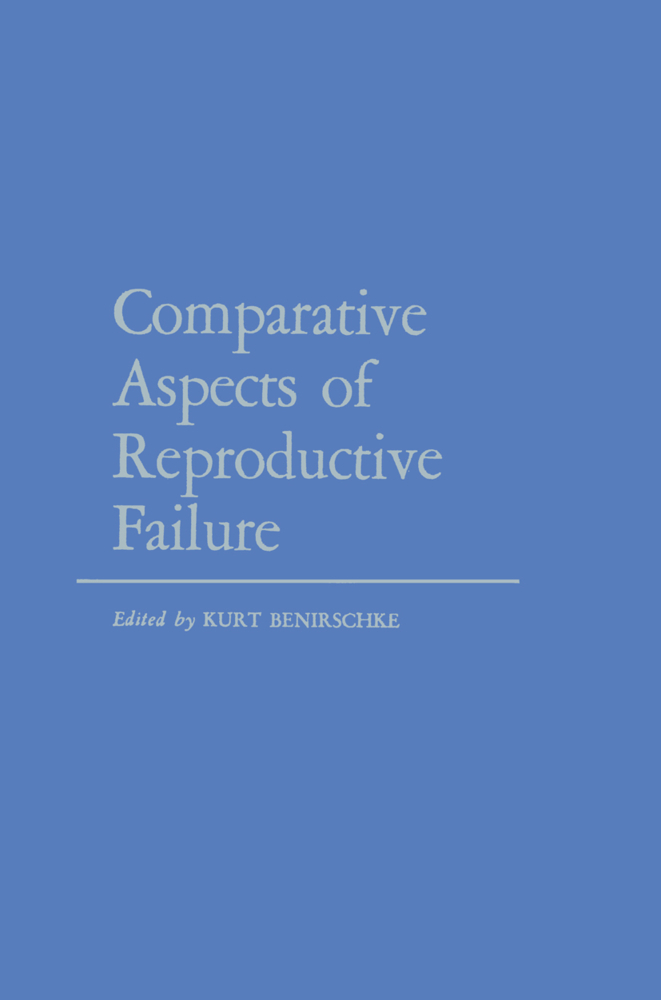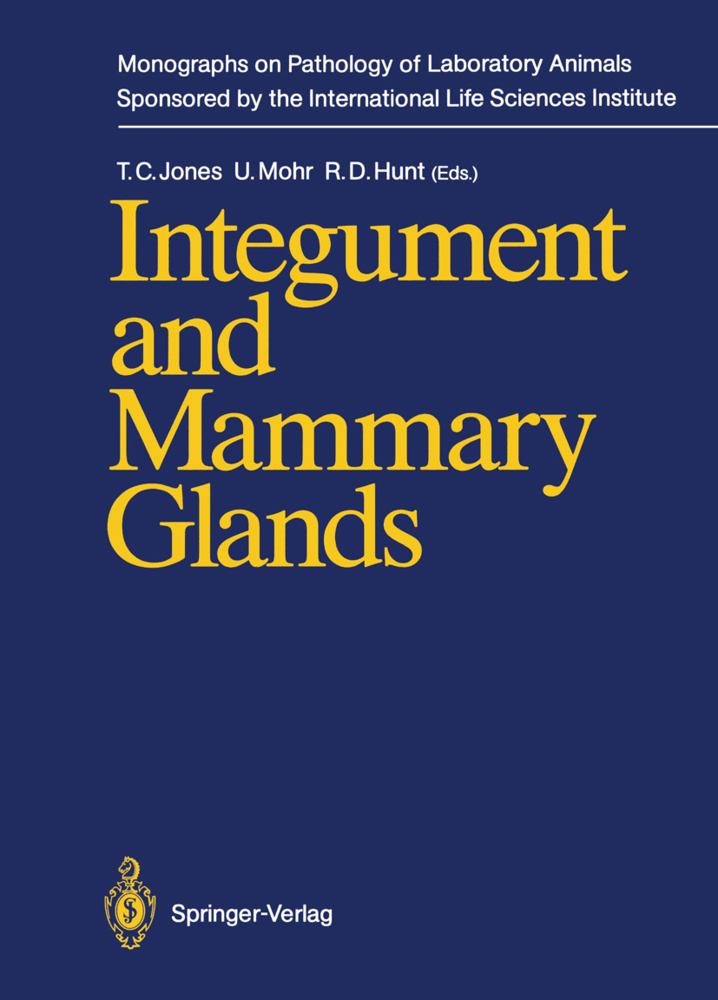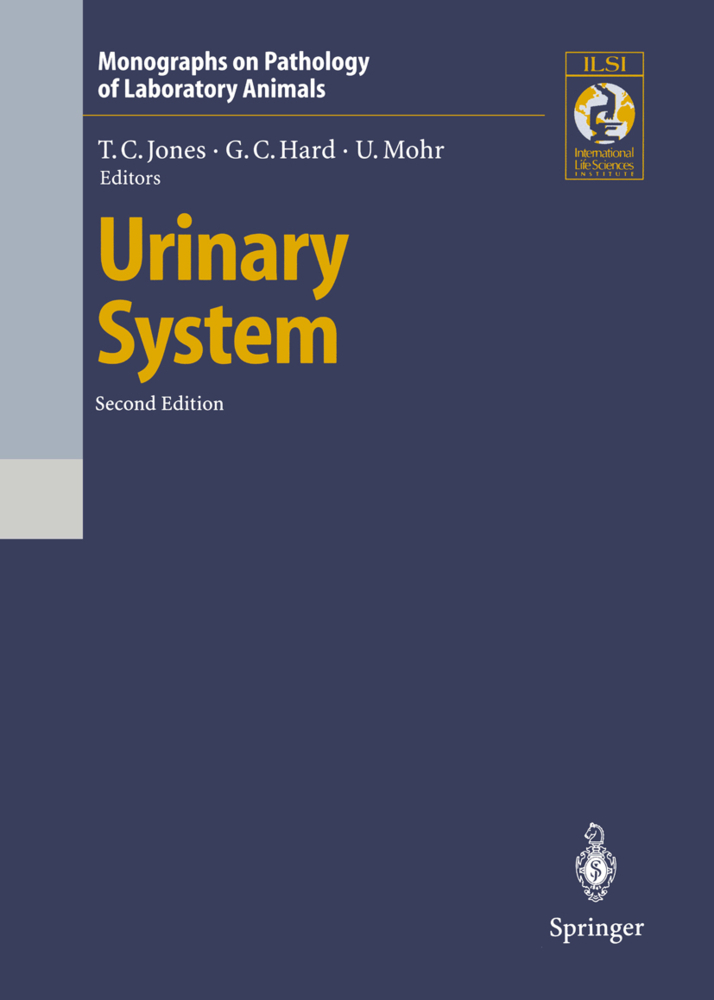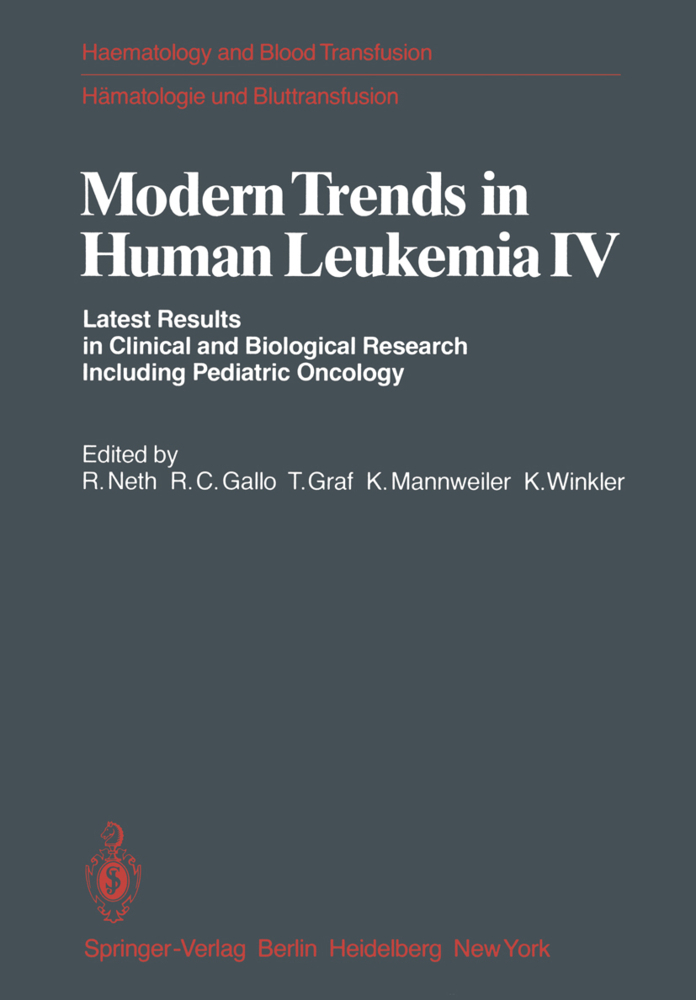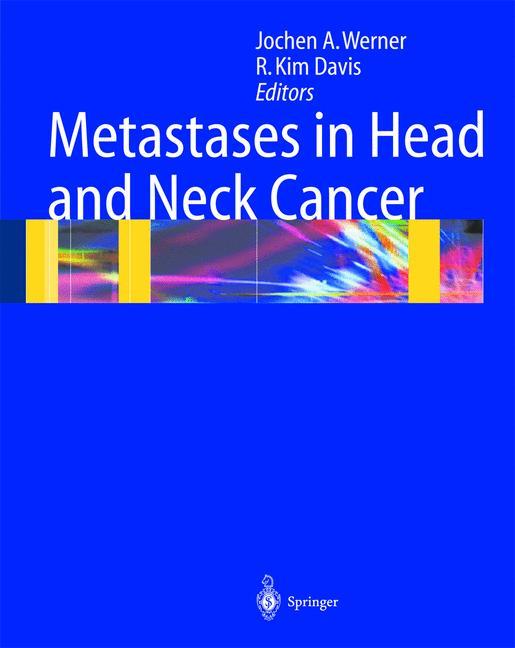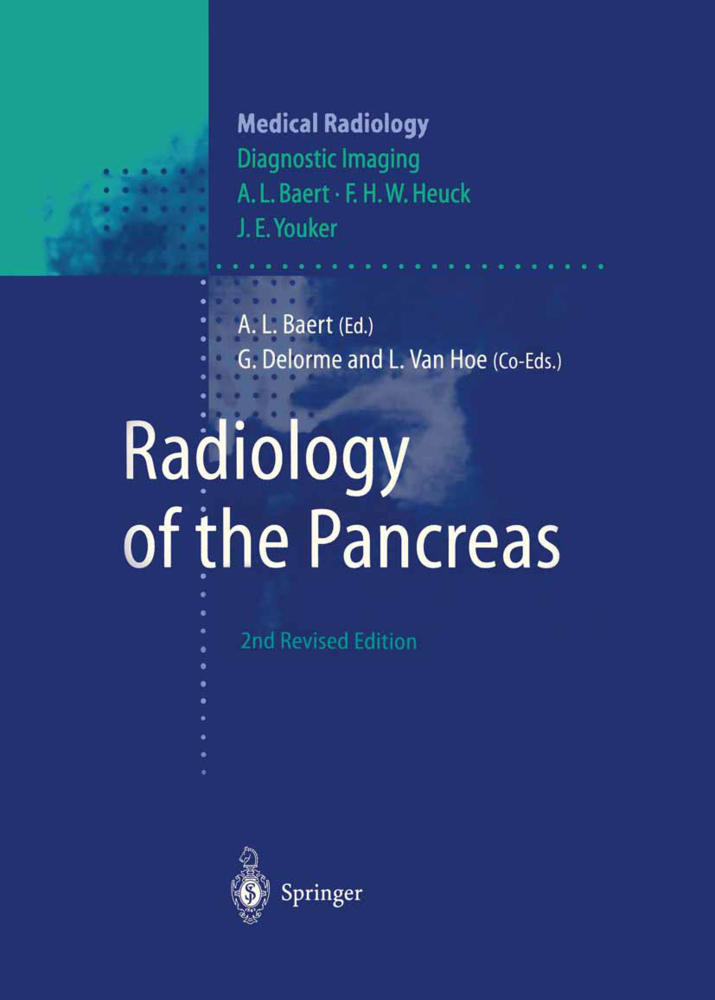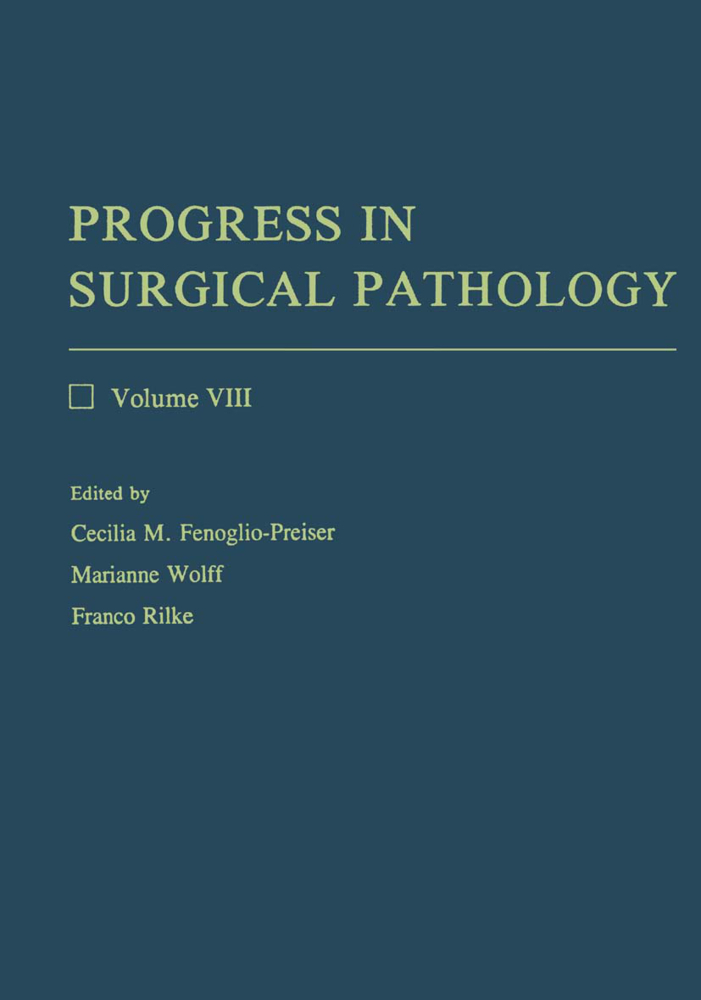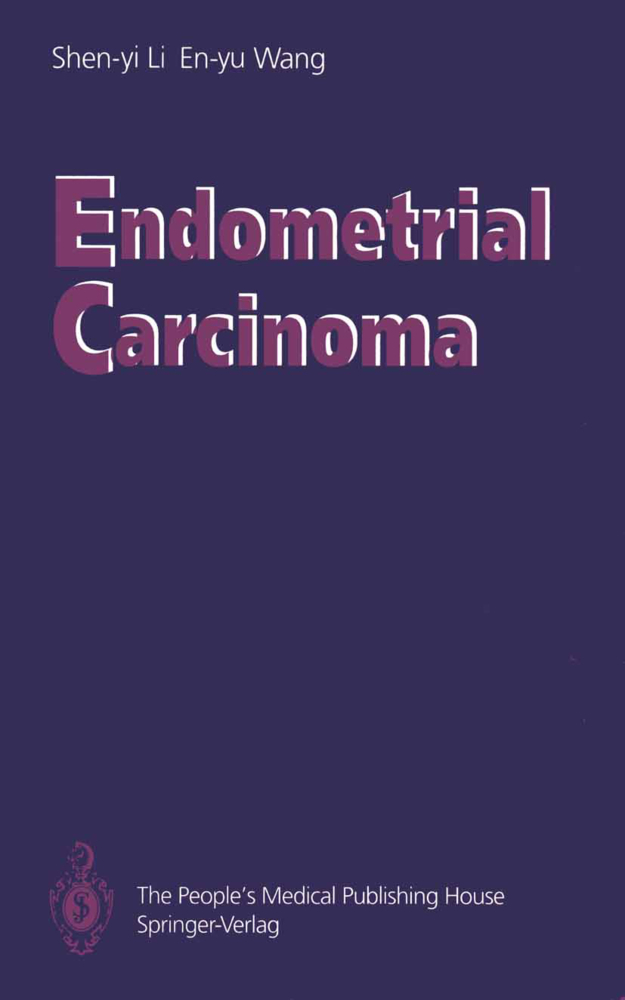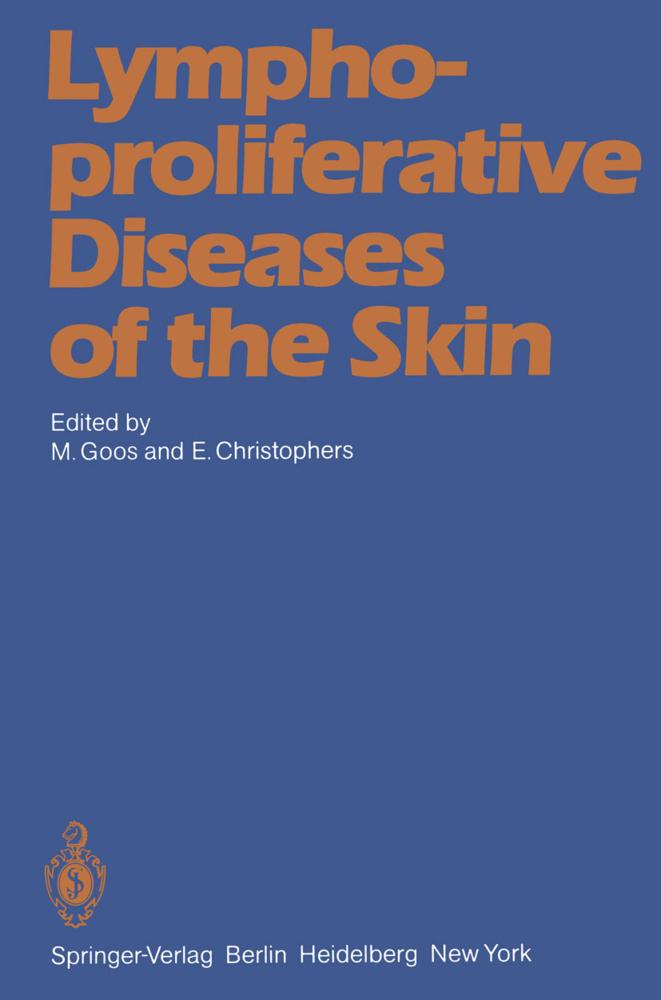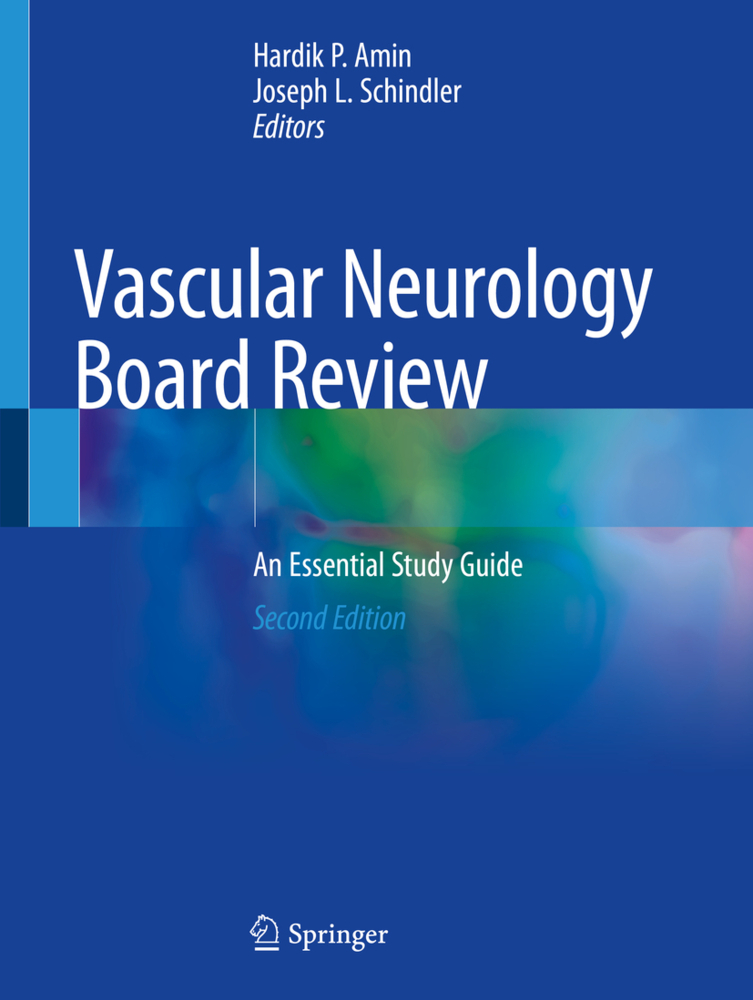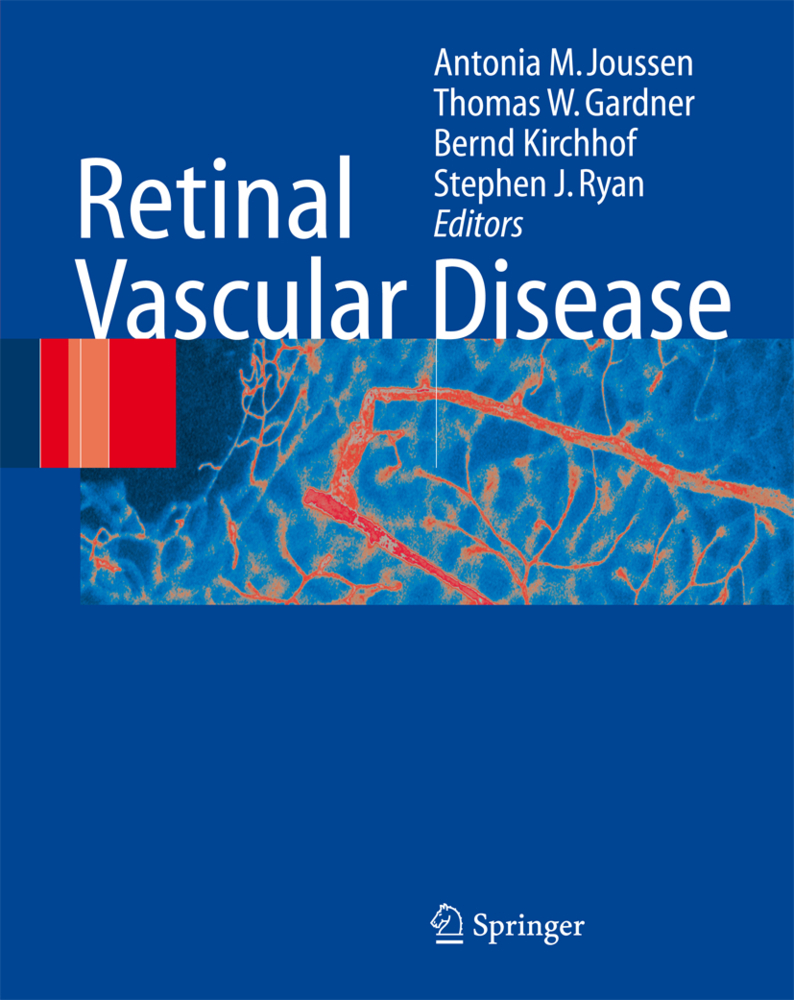Comparative Aspects of Reproductive Failure
An International Conference at Dartmouth Medical School, Hanover, N.H.-July 25-29, 1966
Comparative Aspects of Reproductive Failure
An International Conference at Dartmouth Medical School, Hanover, N.H.-July 25-29, 1966
To many, the contents of this conference may not seem appropriate at a time when the minds are preoccupied with a "population explosion." To the participants and guests of this conference, however, this was a week of fascinating discussions. While quantitative aspects of reproduc tion were touched upon, it was mostly a search for an understanding of the qualitative aspects of reproduction and its failure. Only when we understand these more completely will it be possible to render optimum care and have the foundations for meaningful population control. The conference was conceived in discussions at the Committee on Pathology of the National Academy of Sciences, W"ashington, in 1965. It was felt that investigators in medicine and the veterinary fields would profit greatly from a closer liaison. All too frequently, we work relatively isolated in our respective fields and, with the burgeoning information filling our journals, we have not enough time and leisure to stand back and attempt a comparative look at the subject of study. Often we are not familiar with the techniques other disciplines use, and which we could well employ to great advantage. ,,yhile this applies to many aspects of medicine, a comparative approach to the study of reproductive failure seemed most advantageous at this time.
The egg
Implantation and placentation
The neonate
Comparative values
The Overall Problem in Man
Pathogenesis of abortion
Defective segmenting ova
Ova consisting of trophoblast only
Ova containing no chorionic cavity
Ova showing hypoplasia of trophoblast
Superficial implantation of an otherwise reasonably normal ovum
Spontaneous abortion
Ovular factors
Pathologic ova
Embryos with localized anomalies
Placental abnormalities
Maternal factors
Criminal abortion
Uterine abnormalities
Febrile and inflammatory diseases
Miscellaneous
Anatomically normal ova
Reproductive Failure in Domestic Mammals
Failure in ovarian functions
Anestrus
Seasonal anestrus
Anestrus during lactation
Anestrus due to aging
Ovarian hypoplasia
Abnormal estrus
"Quiet ovulation"
Cystic ovaries
Nymphomania
Fertilization failure and atypical fertilization
Fertilization failure
Aged and abnormal ova
Aged and abnormal sperm
Atypical fertilization
Prenatal mortality
Physiological mechanismsimplantation
Endocrine factors
Causes of prenatal mortality
Age of dam
Nutrition of dam
Heredity
Overcrowding in utero
Thermal stress
Semen quality
Other pregnancy disorders
Spontaneous abortion
Metabolic disorders of pregnancy
Immunological incompatibility
Fetal mummification
Retained placenta
Perinatal mortality
Neonatal mortality
Environmental stress and reproductive failure
Climatic stress
Nutritional stress
Plant estrogens
Anatomical stress and hereditary defects
Congenital and acquired defects
Hereditary defects
Intersexuality
Freemartinism
Physiological mechanisms of the syndrome
Hormonal theory
Sex-chromosome mosaicismtheory
Diagnosis of freemartinism
True hermaphrodites
Comparative aspects
Pseudohermaphroditism
Male pseudohermaphrodite
Female pseudohermaphrodite
Pathogens and reproductive failure
Bacterial infections
Future investigations
Cytogenetics of Abortions
Materials and method
Results
Discussion
Summary
Genetic and Biochemical Aspects of Reproductive Failure
Inborn errors of metabolism
Homozygous lethals in man
The development of enzyme systems
Embryogenesis and organogenesis
Chemo-Mechanics of Implantation
Historical remarks on implantation
Muscular stage-transport, spacing
Adhesive stage
Invasive stage
Interactions of maternal and embryonic factors
Summary
Comparative Aspects of Steroid Hormones in Reproduction
Possible roles for the steroid hormones in control of gestation
Implantation
Pituitary inhibition
Maintenance of decidua and the endometrial implantation site
Myometrial tone and contractility
Length of gestation
Mammary function
Metabolic effects
Summary on the role of steroid hormones in gestation
The role of the corpus luteum in pregnancy
Steroid endocrine role of the placenta
Progesterone
Estrogens
Estrogen synthesis by the placenta
Steroid biosynthesis by the human placenta-The feto-placental unit
Relationship of steroid hormones to pregnancy failures
Summary
Protein Hormones and Gestation
Human chorionic gonadotrophin
History
Biologic effects
Rate of excretion by biologic assays
Rate of excretion by immunologic assays
Natural role of HCG in pregnancy
Human placental lactogen
History
Biologic effects
Luteotrophic effect
Somatotrophic effect
Assay and quantitation
Extrapituitary gestational gonadotrophins in other mammals
ProlongedGestation
Abnormally long gestation in cattle
Genetic factors
Pituitary-adrenal factors
Abnormally long gestation in sheep
Experimental prolonged gestation
Fetal pituitary destruction
Fetal adrenalectomy
Conclusions
Oögenesis-Ovulation and Egg Transport
Oögenesis
Origin of primordial germ cells
Commencement of meiosis
Development of follicular cells
Ovulation
Hormone interaction
Increase in follicular cells
Antrum formation
Displacement of egg
Increase of follicular size
Theca cell changes
Consideration of pressure changes within follicle
Egg transport
Anatomy of fallopian tube
Mechanism of movement of egg into the fallopian tube
Mechanism of transport of egg through the fallopian tube
Hormonal regulation of tubal activity
Experimental Hybridization
Rabbit × hare hybrid experiments
Ferret × mink hybrid experiments
Goat × sheep hybrid experiments
Embryo transfer
Analysis of possible causes of intrauterine death of hybrids
Chromosomes of hybrids
Hormonal and immunological interactions
Summary
Sterility and Fertility of Interspecific Mammalian Hybrids
Equine chromosome morphology
Karyotypes of major members of equidae
Equine hybrids
Bear chromosomes and hybrids
Chromosomes of American and Asiatic Camelidae
Normal structure
Hybrids
Canine chromosomes and hybrids
Cervidae and hybrids
Other interspecific hybrids
Conclusions
Summary
The Sterility of Two Rare Equine Hybrids
Material and methods
Results
Histology of the testis
Chromosome studies
Steroid determinations in testicular tissue
Discussion
Developmental Malformations as Manifestations of Reproductive Failure
The placental membrane plays a complex role in the etiology of mammalian malformations.-Mumps virus
Rat virus
Herpes simplex virus
H-1 virus
There is a specific Teratogen: organ response
Synteratogens and proteratogens
Malformations and Defects of Genetic Origin in Domestic Animals
The skeleton
Entire skeleton
The head
The axial skeleton
The appendicular skeleton
The integument
Digestive tract
Reproduction
Others
Discussion
Summary
Bacterial Infertility in Domestic Animals
Brucellosis
Vibriosis
Leptospirosis
Listeriosis
Summary
Fetal Infections in Man
Pathogenesis of fetal infections
Clinical implications
Correlative studies of placentitis
Closing comments and hypothesis
Toxoplasmosis
Microbe
Infection
Acute toxoplasmosis
Subacute toxoplasmosis
Chronic toxoplasmosis
Relapse
Comparative clinical aspects
Epidemiologic studies
Diagnosis
Fetal toxoplasmosis as sequel to acute infection of the mother
Toxoplasmosis transmitted during chronic maternal infection
Habitual abortions and embryopathies
Sterility
Prevention of toxoplasmosis
Chemotherapy of toxoplasmosis
Summary
Mycotic Diseases in Mammalian Reproduction
Mycosis of the uterus, placenta and fetus
Fungus infections in cattle
Fungus infections in horses
Fungus infections in dogs
Candidiasis, cryptococcosis and coccidioidomycosis in man
Pathology of bovine and equine mycotic infection
Pathogenesis
Mycosis of the male reproductive system
Conclusions
Comparative Aspects of Reproductive Failure Induced in Mammals by Viruses
Rubella virus infections of man
Cytomegalovirus infection of man
Equine virus abortion
Equine infectious anemia (Swamp fever)
Infectious bovine rhinotracheitis (Rednose)
Bovine viral diarrhea virus
Hog cholera (Swine fever)
Blue tongue
Scrapie (Visna)
Summary
A Model for Virus Induced Reproductive Failure: Theory, Observations and Speculations
Virus induced cerebellar ataxia
Summary
Round Table Discussion on Placental Pathology
The number of vessels in the umbilical cord
Gestational pathology and maternal diabetes mellitus
Experimental viral infection of the placenta
The lobular architecture of the human and rhesus placenta
Degeneration of overcrowded placentae
A uterine-amniotic pathway of infecting the rabbit fetus with Listeria monocytogenes
Ontogenesis of the Immune Response
Techniques of intrauterine fetal surgery
Immunization and skin grafting of the fetus
Thymectomy of the fetus in utero
Permanent indwelling catheterization of the fetus in utero
The timing of immunogenesis in the developing animal
Antibody formation
Homograft rejection
Fetal lymphoid development
Significance of immunologic immaturity
The consequences of active immune responses by the fetus
Beneficial consequences of active fetal immunity
Antibody formation and hypersensitivity
Homograft rejection
Deleterious consequences of active fetal immunity
Summary
Immunological Interactions between Mother and Fetus
Preimplantation immunological phenomena
Implantation
Kole of placenta
Barrier function
Transplantation antigens
Trophoblast and its functions
Fibrin layer of placenta
Passage of cells
Deportation of trophoblast
Antigenicity of fetus
Maternal immunological reactivity
Specific immunological interactions between mother and fetus
Hemolytic disease
Leucoagglutinins
Platelet antibodies
Borrowed immunity
Graft vs. host reaction
Protein polymorphism
Common antigens of placenta
Choriocarcinoma
Immunologic unreactivity
Malformations produced by antibodies
Conclusions
Reproduction at High Altitudes
Oxygen transfer from mother to fetus
Physiologic condition at sea level
Safety features
Adjustments at high altitude
Possible reproductive failure at high altitude
In animals
In man
Historical aspects
Congenital defects
Summary
Fertility and Reproductive Performance of Grouped Male Mice
Materials and methods
Crowding experiment I: Effects on reproductive performance
Crowding experiment II: Effects on adrenals, reproductive organs and electroejaculation test
Electroejaculation test
Statistical analysis of data
Results
Crowding experiment I: Effects on reproduction
Mortality and fertility
Ovulations per pregnancy
Implantations per pregnancy
Litter size and intrauterine mortality
Loss of ova between ovulation and implantation
Sex ratio of offspring
Crowding experiment II: Effects on adrenals, reproductive organs, and electroejaculation test
Organ weights
Results of electroejaculation tests
Relation of testicular weights to semen characteristics
Discussion and conclusions
Closing Remarks
Remarks.
to Comparative Reproduction
Seasonality of reproductionThe egg
Implantation and placentation
The neonate
Comparative values
The Overall Problem in Man
Pathogenesis of abortion
Defective segmenting ova
Ova consisting of trophoblast only
Ova containing no chorionic cavity
Ova showing hypoplasia of trophoblast
Superficial implantation of an otherwise reasonably normal ovum
Spontaneous abortion
Ovular factors
Pathologic ova
Embryos with localized anomalies
Placental abnormalities
Maternal factors
Criminal abortion
Uterine abnormalities
Febrile and inflammatory diseases
Miscellaneous
Anatomically normal ova
Reproductive Failure in Domestic Mammals
Failure in ovarian functions
Anestrus
Seasonal anestrus
Anestrus during lactation
Anestrus due to aging
Ovarian hypoplasia
Abnormal estrus
"Quiet ovulation"
Cystic ovaries
Nymphomania
Fertilization failure and atypical fertilization
Fertilization failure
Aged and abnormal ova
Aged and abnormal sperm
Atypical fertilization
Prenatal mortality
Physiological mechanismsimplantation
Endocrine factors
Causes of prenatal mortality
Age of dam
Nutrition of dam
Heredity
Overcrowding in utero
Thermal stress
Semen quality
Other pregnancy disorders
Spontaneous abortion
Metabolic disorders of pregnancy
Immunological incompatibility
Fetal mummification
Retained placenta
Perinatal mortality
Neonatal mortality
Environmental stress and reproductive failure
Climatic stress
Nutritional stress
Plant estrogens
Anatomical stress and hereditary defects
Congenital and acquired defects
Hereditary defects
Intersexuality
Freemartinism
Physiological mechanisms of the syndrome
Hormonal theory
Sex-chromosome mosaicismtheory
Diagnosis of freemartinism
True hermaphrodites
Comparative aspects
Pseudohermaphroditism
Male pseudohermaphrodite
Female pseudohermaphrodite
Pathogens and reproductive failure
Bacterial infections
Future investigations
Cytogenetics of Abortions
Materials and method
Results
Discussion
Summary
Genetic and Biochemical Aspects of Reproductive Failure
Inborn errors of metabolism
Homozygous lethals in man
The development of enzyme systems
Embryogenesis and organogenesis
Chemo-Mechanics of Implantation
Historical remarks on implantation
Muscular stage-transport, spacing
Adhesive stage
Invasive stage
Interactions of maternal and embryonic factors
Summary
Comparative Aspects of Steroid Hormones in Reproduction
Possible roles for the steroid hormones in control of gestation
Implantation
Pituitary inhibition
Maintenance of decidua and the endometrial implantation site
Myometrial tone and contractility
Length of gestation
Mammary function
Metabolic effects
Summary on the role of steroid hormones in gestation
The role of the corpus luteum in pregnancy
Steroid endocrine role of the placenta
Progesterone
Estrogens
Estrogen synthesis by the placenta
Steroid biosynthesis by the human placenta-The feto-placental unit
Relationship of steroid hormones to pregnancy failures
Summary
Protein Hormones and Gestation
Human chorionic gonadotrophin
History
Biologic effects
Rate of excretion by biologic assays
Rate of excretion by immunologic assays
Natural role of HCG in pregnancy
Human placental lactogen
History
Biologic effects
Luteotrophic effect
Somatotrophic effect
Assay and quantitation
Extrapituitary gestational gonadotrophins in other mammals
ProlongedGestation
Abnormally long gestation in cattle
Genetic factors
Pituitary-adrenal factors
Abnormally long gestation in sheep
Experimental prolonged gestation
Fetal pituitary destruction
Fetal adrenalectomy
Conclusions
Oögenesis-Ovulation and Egg Transport
Oögenesis
Origin of primordial germ cells
Commencement of meiosis
Development of follicular cells
Ovulation
Hormone interaction
Increase in follicular cells
Antrum formation
Displacement of egg
Increase of follicular size
Theca cell changes
Consideration of pressure changes within follicle
Egg transport
Anatomy of fallopian tube
Mechanism of movement of egg into the fallopian tube
Mechanism of transport of egg through the fallopian tube
Hormonal regulation of tubal activity
Experimental Hybridization
Rabbit × hare hybrid experiments
Ferret × mink hybrid experiments
Goat × sheep hybrid experiments
Embryo transfer
Analysis of possible causes of intrauterine death of hybrids
Chromosomes of hybrids
Hormonal and immunological interactions
Summary
Sterility and Fertility of Interspecific Mammalian Hybrids
Equine chromosome morphology
Karyotypes of major members of equidae
Equine hybrids
Bear chromosomes and hybrids
Chromosomes of American and Asiatic Camelidae
Normal structure
Hybrids
Canine chromosomes and hybrids
Cervidae and hybrids
Other interspecific hybrids
Conclusions
Summary
The Sterility of Two Rare Equine Hybrids
Material and methods
Results
Histology of the testis
Chromosome studies
Steroid determinations in testicular tissue
Discussion
Developmental Malformations as Manifestations of Reproductive Failure
The placental membrane plays a complex role in the etiology of mammalian malformations.-Mumps virus
Rat virus
Herpes simplex virus
H-1 virus
There is a specific Teratogen: organ response
Synteratogens and proteratogens
Malformations and Defects of Genetic Origin in Domestic Animals
The skeleton
Entire skeleton
The head
The axial skeleton
The appendicular skeleton
The integument
Digestive tract
Reproduction
Others
Discussion
Summary
Bacterial Infertility in Domestic Animals
Brucellosis
Vibriosis
Leptospirosis
Listeriosis
Summary
Fetal Infections in Man
Pathogenesis of fetal infections
Clinical implications
Correlative studies of placentitis
Closing comments and hypothesis
Toxoplasmosis
Microbe
Infection
Acute toxoplasmosis
Subacute toxoplasmosis
Chronic toxoplasmosis
Relapse
Comparative clinical aspects
Epidemiologic studies
Diagnosis
Fetal toxoplasmosis as sequel to acute infection of the mother
Toxoplasmosis transmitted during chronic maternal infection
Habitual abortions and embryopathies
Sterility
Prevention of toxoplasmosis
Chemotherapy of toxoplasmosis
Summary
Mycotic Diseases in Mammalian Reproduction
Mycosis of the uterus, placenta and fetus
Fungus infections in cattle
Fungus infections in horses
Fungus infections in dogs
Candidiasis, cryptococcosis and coccidioidomycosis in man
Pathology of bovine and equine mycotic infection
Pathogenesis
Mycosis of the male reproductive system
Conclusions
Comparative Aspects of Reproductive Failure Induced in Mammals by Viruses
Rubella virus infections of man
Cytomegalovirus infection of man
Equine virus abortion
Equine infectious anemia (Swamp fever)
Infectious bovine rhinotracheitis (Rednose)
Bovine viral diarrhea virus
Hog cholera (Swine fever)
Blue tongue
Scrapie (Visna)
Summary
A Model for Virus Induced Reproductive Failure: Theory, Observations and Speculations
Virus induced cerebellar ataxia
Summary
Round Table Discussion on Placental Pathology
The number of vessels in the umbilical cord
Gestational pathology and maternal diabetes mellitus
Experimental viral infection of the placenta
The lobular architecture of the human and rhesus placenta
Degeneration of overcrowded placentae
A uterine-amniotic pathway of infecting the rabbit fetus with Listeria monocytogenes
Ontogenesis of the Immune Response
Techniques of intrauterine fetal surgery
Immunization and skin grafting of the fetus
Thymectomy of the fetus in utero
Permanent indwelling catheterization of the fetus in utero
The timing of immunogenesis in the developing animal
Antibody formation
Homograft rejection
Fetal lymphoid development
Significance of immunologic immaturity
The consequences of active immune responses by the fetus
Beneficial consequences of active fetal immunity
Antibody formation and hypersensitivity
Homograft rejection
Deleterious consequences of active fetal immunity
Summary
Immunological Interactions between Mother and Fetus
Preimplantation immunological phenomena
Implantation
Kole of placenta
Barrier function
Transplantation antigens
Trophoblast and its functions
Fibrin layer of placenta
Passage of cells
Deportation of trophoblast
Antigenicity of fetus
Maternal immunological reactivity
Specific immunological interactions between mother and fetus
Hemolytic disease
Leucoagglutinins
Platelet antibodies
Borrowed immunity
Graft vs. host reaction
Protein polymorphism
Common antigens of placenta
Choriocarcinoma
Immunologic unreactivity
Malformations produced by antibodies
Conclusions
Reproduction at High Altitudes
Oxygen transfer from mother to fetus
Physiologic condition at sea level
Safety features
Adjustments at high altitude
Possible reproductive failure at high altitude
In animals
In man
Historical aspects
Congenital defects
Summary
Fertility and Reproductive Performance of Grouped Male Mice
Materials and methods
Crowding experiment I: Effects on reproductive performance
Crowding experiment II: Effects on adrenals, reproductive organs and electroejaculation test
Electroejaculation test
Statistical analysis of data
Results
Crowding experiment I: Effects on reproduction
Mortality and fertility
Ovulations per pregnancy
Implantations per pregnancy
Litter size and intrauterine mortality
Loss of ova between ovulation and implantation
Sex ratio of offspring
Crowding experiment II: Effects on adrenals, reproductive organs, and electroejaculation test
Organ weights
Results of electroejaculation tests
Relation of testicular weights to semen characteristics
Discussion and conclusions
Closing Remarks
Remarks.
Benirschke, K.
| ISBN | 978-3-642-48951-8 |
|---|---|
| Medientyp | Buch |
| Copyrightjahr | 2013 |
| Verlag | Springer, Berlin |
| Umfang | XXI, 485 Seiten |
| Sprache | Englisch |

